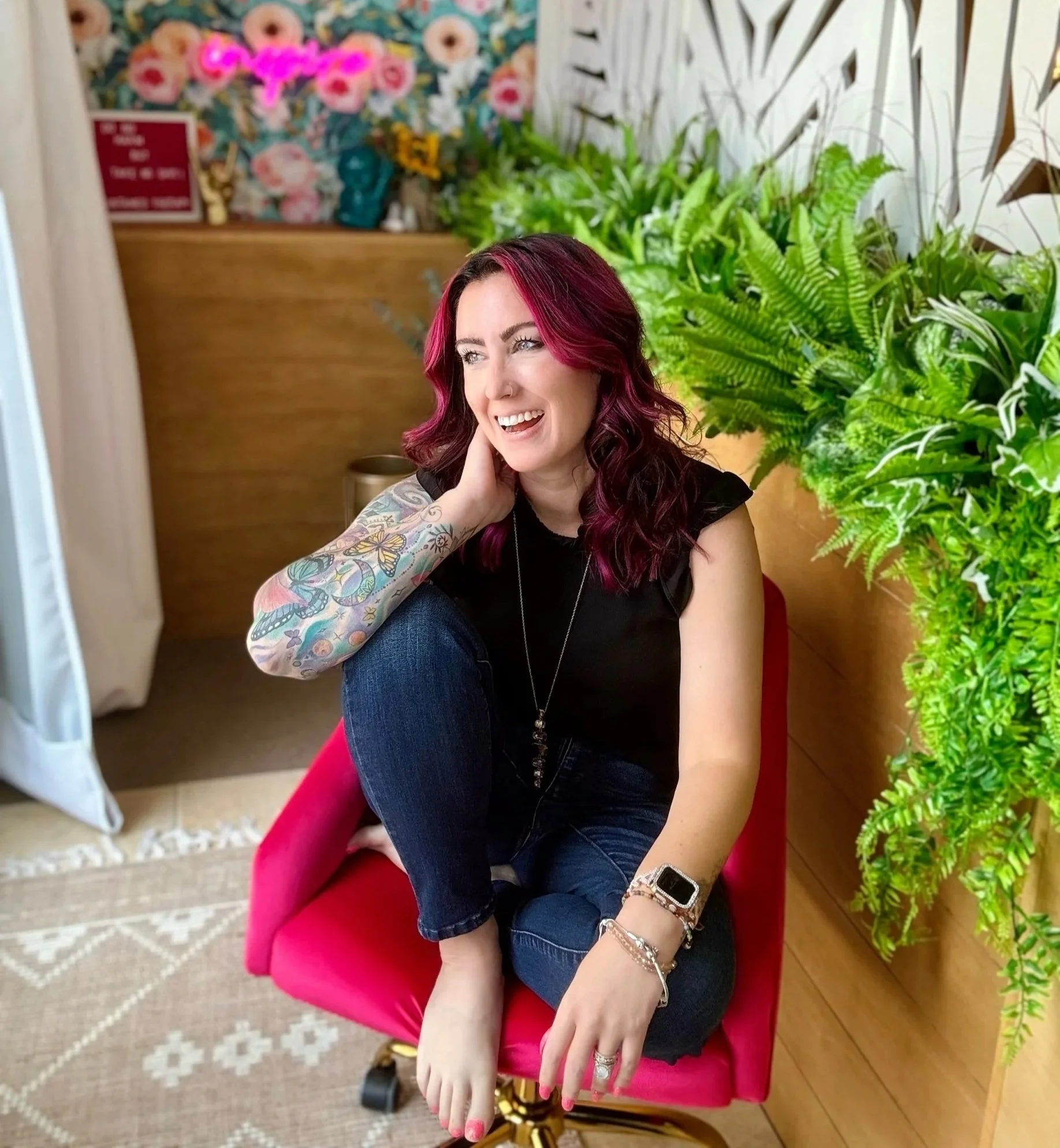Hyper Independence in Relationships: Why “I Don’t Need Anyone” Keeps Wrecking Your Love Life
TL;DR: Hyper independence in relationships looks like never asking for help, keeping your walls sky-high, and calling it “strength.” But the truth? It’s a trauma response that keeps intimacy feeling unsafe and partners feeling unwanted. Healing means learning how to let people in without abandoning yourself. If you’re done being the “strong one” 24/7, working with a trauma therapist in Cape Coral can help you rewrite that script.
Let’s Be Real: Hyper Independence Isn’t It in Relationships
You tell yourself it’s “empowering” to need no one. You wear your self-sufficiency like armor. You’re the woman who moves the damn couch by herself, pays all her bills, keeps the house running, and still manages to smile at dinner. People clap and say, “Wow, you’re so strong.”
But here’s the messy truth: that armor gets heavy as hell. And in relationships, it can turn intimacy into a f*cking minefield.
What Hyper Independence in Relationships Looks Like
You never ask for help. Not even for the little things. It feels safer to do it all yourself than risk being let down.
You keep your emotions on lockdown. Vulnerability equals danger. So you stay surface-level, even with people you love.
You confuse control with safety. If you’re in charge, you can’t be abandoned… right?
You send mixed signals. You crave closeness, but push partners and sometimes close friends away the second they try to show up for you.
You over-function. You manage the house, the plans, the emotions, and everything. Then secretly resent your partner for “never helping,” even though you never let them.
Sound familiar? Yeah. Hyper independence is intimacy’s worst enemy.
Hyper Independence Is Not Your Fault
Hyper independence is almost always born from trauma. Maybe you had to raise yourself, or you learned early that leaning on people means disappointment. Maybe love came with strings attached, or asking for help got you shamed.
So your brain did what it had to do: it built a fortress. Depend on no one. Show no needs. Carry it all alone. That fortress kept you alive once… but now it’s keeping you lonely.
What’s Actually Happening in the Brain
Trauma doesn’t just live in your memories; it literally reshapes how your brain and nervous system operate. When you’ve been through emotional neglect, betrayal, abandonment, or had to survive in an environment where safety and consistency weren’t guaranteed, your brain starts to make survival-based associations. It begins to connect dependence, vulnerability, and emotional closeness with danger.
In neuroscience terms = how trauma trips your brain’s fire alarm
The amygdala = your brain’s fire alarm. It’s designed to keep you alive by scanning for danger.
It doesn’t just react to physical threats. It can still go off when someone tries to support you or get close.
Your nervous system gets stuck in a loop. Emotional closeness feels like danger, so your body treats it like survival.
Think: running bear mode. Needing someone can trigger the same panic as being chased through the woods.
Fight, flight, freeze, or fawn takes over. The whole f*ckery circus runs the show until your body feels safe again.
Here’s the truth: this isn’t dysfunction. It’s your body doing its job with outdated data, trying its best to keep you alive by avoiding the things it once connected with pain. The problem is, it doesn’t realize the danger isn’t here anymore.
Healing starts when you stop judging these patterns as weakness and start seeing them as protection that once kept you safe but now keeps you stuck, exhausted, and disconnected from the very intimacy you crave.
Why It Blows Up Your Relationships
Partners feel unwanted. Your “I got it” energy makes them wonder if you even like them.
Connection feels dangerous. Intimacy requires letting your walls down, and your survival brain freaks out every time.
You end up resentful. You say, “I don’t need anything,” then stew when no one shows up or reaches out.
You feel unseen. Because you never let anyone close enough to see the real you.
It’s not that you don’t want love. It’s that love feels like handing someone a loaded gun labeled “potential disappointment.”
Healing Hyper Independence in Relationships
Here’s the good news: you don’t have to keep living like this. Healing doesn’t mean turning into someone who “can’t do anything alone.” It means learning that you can do it all, but you don’t have to.
Name the armor. Notice where you shut down support before it’s even offered.
Practice receiving. Start small. Let someone carry a bag, open a door, or listen without apologizing for it. Your only job is to say “thank you.”
Reframe worth. Your value isn’t tied to how much you can carry alone.
How to reframe it: When you think, “I should handle this alone,” swap it with, “Asking for help makes me human.” Then follow through by delegating one small thing; whether that’s asking your partner to grab dinner, texting a friend to vent, or letting yourself take a nap instead of powering through.Build safe connections. Slowly let in people who’ve proven they can hold space for the messy shit, not just the polished.
Get real support. Trauma doesn’t heal by itself. Therapy helps retrain your nervous system so intimacy stops feeling like danger.
Takeaway:
Hyper independence in relationships isn’t empowerment, it’s survival mode. It keeps you “safe,” but also stuck, resentful, and craving connection you won’t let yourself have. Real healing is learning that you can be both strong and soft, self-sufficient and supported, independent and loved.
If this hit you right in the gut, you’re not alone.
I’m Jessica Brooks, a trauma therapist in Cape Coral who helps hyper-independent women stop white-knuckling their lives and finally let love in without fear.
I offer EMDR intensives designed to go deeper than weekly sessions so you can actually rewire the patterns that keep you shut down in relationships.
👉 Book a free consult today and let’s flip the fucking script together.
About the Author
You don’t have to keep being the strong one who’s silently falling apart. I help you heal the trauma behind your burnout, ditch the hyper-independence, and finally feel like you again.
-Jessica Brooks, Licensed Mental Health Counselor (LMHC), EMDR-Certified Therapist offering EMDR Intensives in Cape Coral, FL


